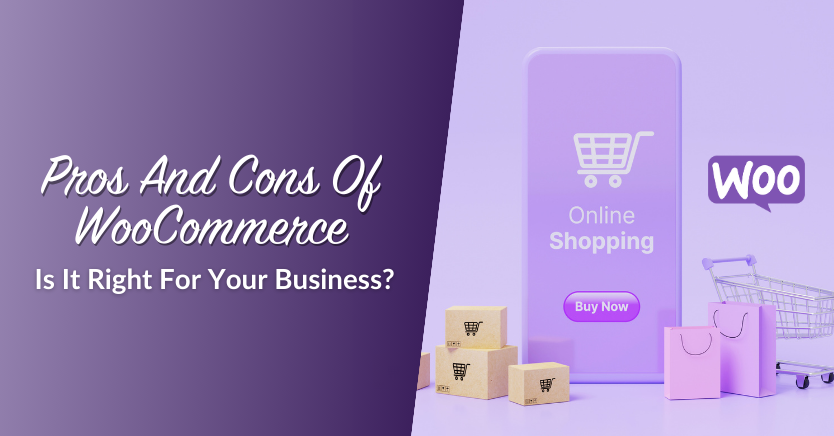
If you’re looking to bring your business online and are researching the best options, then you’ve probably come across WooCommerce. This robust platform is one of the most popular e-commerce solutions, known for its powerful features and immense flexibility. But is it the right choice for you? In this article, we’ll walk you through the pros and cons of WooCommerce to help you make an informed decision.
So, are you ready to learn? Let’s get straight into it!
What Is WooCommerce?
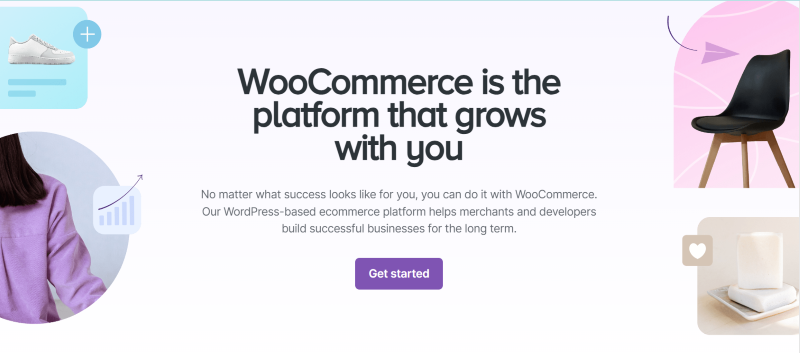
WooCommerce is a powerful, open-source e-commerce plugin that turns WordPress websites into fully functional online stores. It’s one of the most popular e-commerce solutions, powering over four million online stores worldwide. Before we dive into the pros and cons of WooCommerce, let’s take a quick glimpse at what it offers:
- Customizable online storefront: WooCommerce supports a wide variety of themes and design options, allowing business owners to create unique and appealing online shops that match their brands.
- Product management: With WooCommerce, you can easily add, categorize, and manage a wide variety of products. You can sell digital downloads, physical goods, and even external/affiliate products.
- Order management, shipping, and tax: This platform enables you to track, manage, and fulfill orders right within your WordPress dashboard. It also allows you to configure shipping rates and automate tax calculations based on criteria such as customer location, product type, and shipping methods.
- Built-in marketing tools & analytics: With WooCommerce, you can set up basic discount coupons to promote your store. It also comes with built-in analytics, giving you insights into the performance of your online store, such as average order values, total sales, and items sold.
- Offers secure and versatile payment options: WooCommerce also integrates with a variety of payment gateways to provide flexible payment options to customers.
Pros Of WooCommerce
After reviewing the core features of WooCommerce, we begin to understand why it’s appealing to thousands of store owners. From customizable storefronts to product management and flexible payment gateways, the platform offers everything a business owner needs to run a successful online store. So now, it’s time to dive into the pros and cons of WooCommerce.
Let’s start with the advantages:
1. Immense flexibility and customization
WooCommerce offers unmatched flexibility for business owners. As an open-source platform, it offers virtually limitless customization options, helping you create an e-commerce website that matches your exact requirements. Here are just a few of the customization options WooCommerce offers:
- Design: The platform supports a wide range of themes, each of which is fully customizable. You can adjust theme colors, layouts, and fonts to create an online storefront that matches your brand.
- Products: Another key advantage of WooCommerce is the flexibility it offers to the types of products you can sell. You can offer digital products, physical goods, subscriptions, or even affiliate products. This makes it suitable for different kinds of businesses and industries.
- Plugins and extensions: WooCommerce has an extensive library of available plugins and extensions, allowing you to add any functionality you can think of to your store! For example, you can install plugins like Advanced Coupons to extend the default WooCommerce coupon functionality and create promotions that activate only when certain cart conditions are met.
- Custom development: Because WooCommerce is an open-source platform, you can make custom modifications to its code. If you have the technical skills or have a developer on your team, you can tailor your store exactly to what your business needs.
This immense flexibility and customization options also mean that WooCommerce can grow alongside your business. You don’t need to worry about outgrowing the platform as you can continuously add new features, enhance functionality, and improve the customer experience as your store grows.
2. SEO-friendly
If we’re talking about the pros and cons of WooCommerce, we can’t miss mentioning its advantage when it comes to SEO optimization. This is crucial if you want to succeed in the online marketplace. According to industry research, 71% of customers begin their purchase journeys using a search engine to discover new products and services. Therefore, you’ll want to increase your visibility in search engine results to reach customers seeking your solutions.
WooCommerce helps you maximize your visibility with its built-in features, such as customizable product titles, product categories, permalinks, and meta descriptions. By optimizing these elements, you can increase the chances of your products appearing on search results.
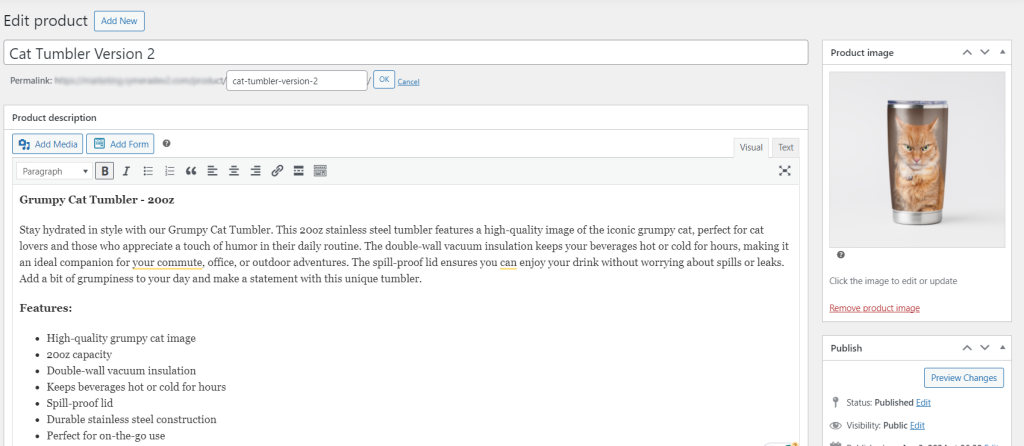
Additionally, you can utilize WooCommerce plugins such as AIOSEO to manage, analyze, and improve your store’s SEO performance. Plugins like AdTribes for WooCommerce also allow you to create product feeds that directly showcase your products on Google Shopping and Bing Ads. The possibilities to grow are endless.
3. Thriving community & support
Millions of business owners use WooCommerce, building a thriving community of active users, developers, and designers who share invaluable knowledge and best practices on official forums and online communities. WooCommerce also provides thorough documentation about its key features, from setup guides to tutorials, and articles. This is a huge advantage, especially for new store owners.
Cons Of WooCommerce
While WooCommerce offers many benefits, it’s also essential to consider the potential drawbacks. What are the disadvantages of using WooCommerce for your online store?
1. Initial setup can be challenging for beginners
Setting up a WooCommerce store requires basic knowledge of WordPress, hosting, and domain management. However, this can be quite challenging for users who are not used to the WordPress environment. While one of the platform’s advantages is its many customization options. available, you’ll need to devote time to finding the right themes or plugins that match your requirements.
It’s important to note that all e-commerce tools have a learning curve. However, investing the time and effort to understand the platform can be rewarding, considering the immense flexibility and customization options available.
2. Limited to WordPress websites
A key consideration when evaluating the pros and cons of WooCommerce is that it’s limited to WordPress websites. The platform is built specifically for WordPress, which can make it challenging for businesses with existing, non-WordPress websites. Migrating existing content to a completely new website can be time-consuming and complex.
However, the process is simpler for those who are starting from scratch or do not have an existing business website yet. By building your e-commerce store on WordPress using WooCommerce from the outset, you can take advantage of the powerful features of both platforms. This means being able to manage both your e-commerce storefront and website content in a single dashboard.
3. Updates and maintenance requirements
WooCommerce releases updates that improve the functionality and overall performance of your store. Keeping everything up-to-date is important to ensure the security of your website. With WooCommerce, you handle these maintenance tasks yourself. This also applies to WordPress, themes, and other plugins that you use.
Is WooCommerce The Right Choice For You?
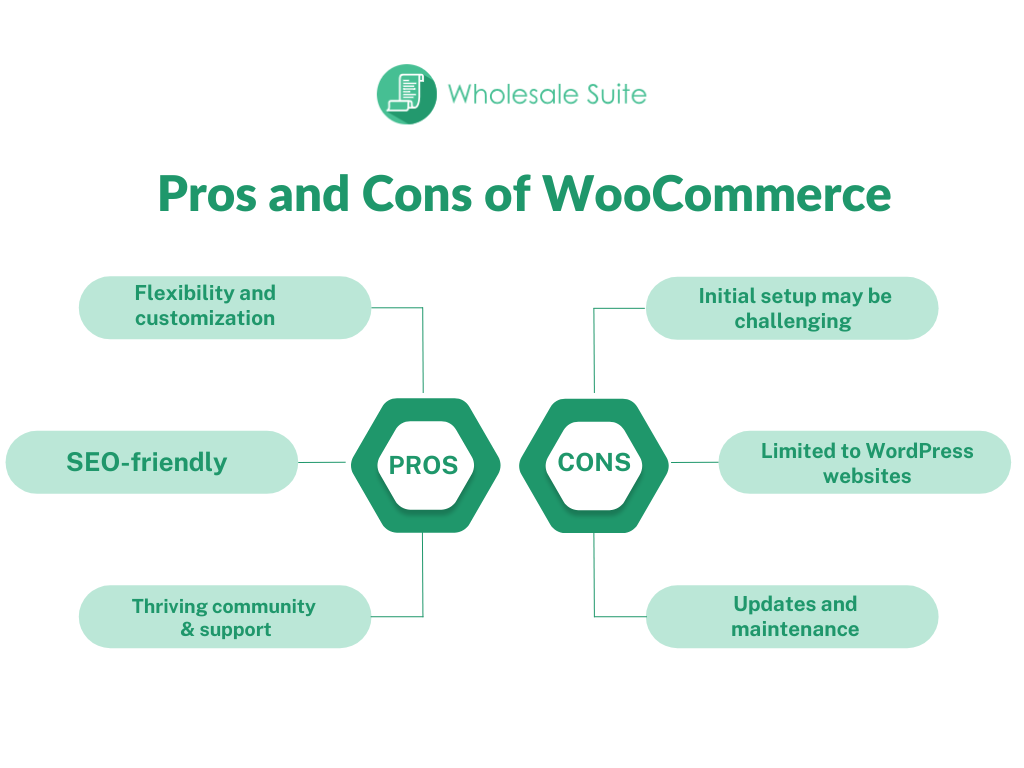
After we’ve reviewed the pros and cons of WooCommerce, you might be wondering if it’s the right choice for your business. If you’re still a little confused, no worries! We’ve outlined some additional considerations that will help you decide if it’s the right fit for your business:
- Business needs: If you require a highly customizable online store that can scale with your business, you can benefit from the flexibility that WooCommerce offers. You might consider other options if you prefer a more straightforward solution.
- Technical know-how: It’s also important to consider your technical knowledge. For users with a basic understanding of the WordPress environment, the learning curve for using WooCommerce is easier.
- Long-term plans: One of the biggest advantages of WooCommerce is that it can evolve alongside your business. With WooCommerce, you can explore growth options like selling different types of products or even catering to new types of customers, such as wholesale buyers.
- Investment: While WooCommerce and WordPress are free, there are costs associated with hosting, themes, and plugins, depending on the requirements of your business. However, with WooCommerce, you have a lot more control over which aspect you want to spend on in your business.
Using WooCommerce To Launch A Wholesale Business
After reviewing the pros and cons of WooCommerce, we now have a better understanding of its capabilities. With the platform’s immense flexibility and customization options, it remains a top choice for starting different kinds of businesses, including wholesale stores. Leveraging all-in-one solutions like Wholesale Suite makes this process a breeze.
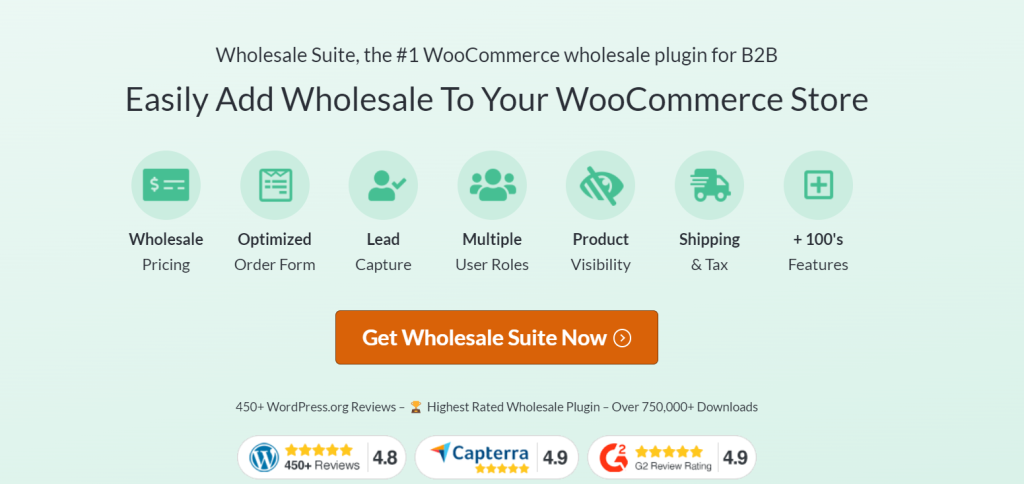
This all-in-one solution allows you to transform your WooCommerce store into a wholesale powerhouse, with features like:
- Wholesale pricing: Set and manage wholesale prices, implement tiered pricing, configure minimum order requirements, set up multiple wholesale user roles and so much more!
- Lead capture: Sign up potential wholesale customers with ease using a fully customizable B2B registration form. You can also automate welcome emails and set approval processes depending on your unique business requirements.
- Bulk order form: Create a streamlined checkout process for wholesale customers with a one-paged ordering form that makes bulk-buying easy.
- Offer flexible payment terms: Give wholesale customers more options to pay, including installment, NET 30/60/90 payments, or tailored payment plans based on their unique needs.
Conclusion
WooCommerce is one of the most powerful e-commerce solutions in the market and for good reasons. It provides store owners with flexibility and customization options that can scale as your business grows. We hope that our guide to the pros and cons of WooCommerce helped you make an informed decision.
To summarize, let’s review the Pros and Cons of WooCommerce below:
Pros
Cons
- Initial setup may be challenging for beginners
- Limited to WordPress websites
- Updates and maintenance
So, do you have any questions about this article? Let us know in the comments section below!




